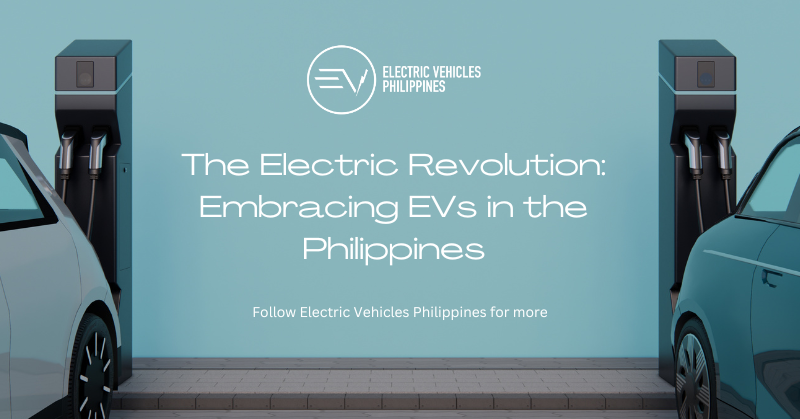Infrastructure Development: Charging Ahead
One of the primary challenges faced by EV adoption in the Philippines has been the limited charging infrastructure. However, recent initiatives by both the government and private sector are rapidly addressing this issue. Charging stations are being strategically installed in urban centers, along major highways, and in commercial areas, fostering a more EV-friendly environment.
Government Initiatives: Driving Change
The Philippine government has implemented various policies and incentives to promote the use of electric vehicles. These include tax breaks for EV manufacturers and importers, reduced import duties, and exemptions from excise taxes. Additionally, the Department of Energy (DOE) has been actively collaborating with industry stakeholders to develop a comprehensive roadmap for sustainable EV adoption.
Economic and Environmental Benefits: A Win-Win Scenario
Beyond the environmental advantages of reducing carbon emissions, the adoption of EVs in the Philippines offers significant economic benefits. The country, heavily dependent on oil imports, can reduce its foreign exchange spending on oil by shifting towards locally produced renewable energy to power EVs. This shift not only strengthens energy security but also stimulates the growth of the renewable energy sector.
Local EV Manufacturing: A Booming Industry
The Philippines has witnessed a surge in the local manufacturing of electric vehicles, ranging from e-trikes and e-jeepneys to electric bicycles. This not only contributes to the reduction of carbon footprints but also supports the growth of the domestic electric vehicle industry. Companies like XEV Philippines and EMotors are pioneering this movement with innovative and sustainable transportation solutions.
Public Perception and Education: Key Drivers for Adoption
While the benefits of EVs are clear, public awareness and understanding play a crucial role in their widespread adoption. Educational campaigns and outreach programs are essential to dispel myths, address concerns, and highlight the long-term advantages of electric vehicles. By fostering a positive perception, more Filipinos can be encouraged to make the switch to sustainable transportation options.
Challenges and Future Prospects
Despite the progress, challenges remain, including concerns about charging infrastructure, upfront costs, and range anxiety. Continued collaboration between the government, private sector, and advocacy groups is essential to address these challenges and further accelerate the adoption of EVs in the Philippines.
In conclusion, the Philippines is on the brink of an electric revolution that promises a cleaner, more sustainable future. With supportive government policies, a growing charging infrastructure, and a burgeoning local EV industry, the archipelago is poised to become a leading player in the shift towards electric mobility. As more Filipinos embrace the benefits of electric vehicles, the country is not only contributing to global efforts to combat climate change but also reaping the economic rewards of a green and sustainable transportation sector

